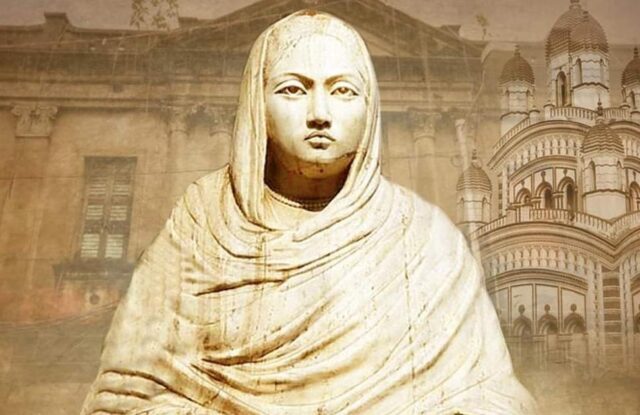Today we live in a somewhat sane version of a democratic and secular India which breathes freely away from the grip of the fascist British Raj. However, rest assured we had to fight tooth and nail for the independence of our country. Battles were fought, lives were lost, betrayal ensued from all sides and yet somehow India stands tall even today.
During the British Raj, India had to face some of the darkest moments ever recorded in history. Be it the Jallianwala Bagh massacre of 1919 that resulted in the mass murder of hundreds of innocents or the Bengal Famine of 1943 that seized millions of lives of Indians, the evil vices of British imperialism was savage and vindictive.

There were a lot of imminent people and freedom fighters because of whose sacrifices we are where we are today. It was because of people like Netaji Subhash Chandra Bose, Bhagat Singh, Chandrashekhar Azad to name a few that we successfully drove the British back to where they come from.
Meanwhile, apart from physical force, there were people who used their wit and intelligence to thwart the British Raj. One such woman, whose stature is equivalent to that of a goddess, who outwitted the British was Rani Rashmoni.
Who Is Rani Rashmoni?
Lokmata Rani Rashmoni was a very reverent and spiritual woman who founded the temple of Dakshineswar on the banks of the river Ganges in North 24 Pargana.

The reason behind the building of the temple lies in quite famous folklore which entails that Rani when Rashmoni was traveling to Varanasi on pilgrimage, Goddess Kali appeared in her dream and commanded her to build a temple there on the bank of the Ganges and arrange for daily Anna Bhogh or rice offering.

She was married off to a rich and famous zamindar – Raj Chandra Das of Jaan Bazar at the ripe age of 11. The zamindar was a kind man who was widely known for his honor and benevolence. However, after the death of her husband, she took over the business.
Rani Rashmoni – The Entrepreneur
Though extremely religious and having been subjected to harsh severity in personal life like taking only one meal a day and sleeping on a bare floor, Rashmoni was competent and proficient in managing such a very big zamindari after the death of her husband but she managed to increase its prestige and income to a great extent.
Acknowledging and recognizing this untamed talent of Rashmoni, Raj Chandra Das gave her unlimited access to all his business holdings and trade. In fact, if we look at zamindar himself, he was a man ahead of his time – unconventional and educated. Instead of limiting his wife to just the household chores as was the norm of the time, he encouraged her to explore her hand at entrepreneurship.

Both of them were devout social workers and spent most of their wealth for the benefit of the people. In fact, it is owing to both of them that Kolkata has two of the most archaic and beautiful Ghats – Babughat and Ahiritola Ghat.
Read More: Mount Everest Should’ve Been Named After This Indian And Not A Britisher
How Did Rani Rashmoni Take A Stand Against The British?
Rani Rashmoni was an out-and-out nationalist. She did not for once hide her aversion to the British and neither did she waver in her stance.
In fact, every time the East India Company did something wrong with the people, they would rush to her for help. She was a staunch protector of her people and would do everything in her power to aid them.
For example, when the British imposed taxes on poor fishermen whose only source of income was fishing from the Ganges, Rani Rashmoni paid an amount of 10,000 rupees to the British for a lease of a 10km stretch of Ganges, and on procuring the documents she laid strong chains across the Ganges from Ghusuri to Metiabruz.
Soon trade and commerce began deteriorating as no ship could pass the chains. As a result of which, the British had to remit the tax on the fishermen and work according to their will.

Another such scenario was witnessed when Britishers put a ban on puja processions on the grounds of disrupting the peace. Infuriated by such an attack on religious sentiment, Rani Rashmoni retaliated by sending out a procession with drums and cheers of people.
Owing to her “disobedience” the British imposed a fine of 40 rupees on her. The news of imposition of this penalty spread and thousands of people thronged for the remission of her fine and the Britishers had to bow down again by remitting the fine.
On another occasion, some British soldiers mistreated some of Rani’s female subjects. Upon hearing such an atrocity, she immediately got the soldiers arrested by her guards. Infuriated by such audacity, the British soldiers got seized the Jaan Bazar Palace. The undaunted Rani took a sword in her own hand and stood upstairs at the gate to save her men and the idol of Raghunathji, her family deity.

Upon finding an uncanny similarity of such a visual scenario with that of the Goddess Kali, the British retreated.
These were only a few of the vast instances when Rani Rashmoni took the law into her own hands and faced the British dauntlessly. Her valiant and unflinching nature is the reason why Rani Rashmoni was a force to reckon with.
Image Sources: Google Images
Sources: The Hindu, Better India, The Statesman
Find the Blogger: @Rishita51265603
This post is tagged under British imperialism, British India, British dominating India, Rani Rashmoni, Bengali widow, Rashmoni stood up against British raj, outwitted British, educated husband, entrepreneur ahead of her time, Raj Chandra Das, Jaan Bazar, Tax imposed on fishermen, Dakshineswar temple, bengali rashmoni british raj
More Recommendations:
Homophobia Is Not A Part Of Indian Culture, It’s A Leftover From British Raj































